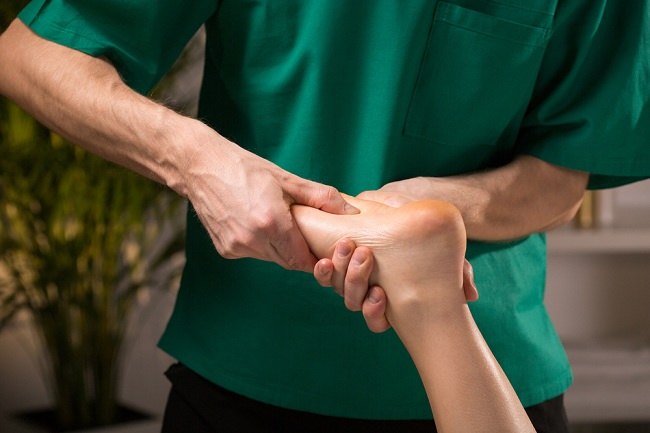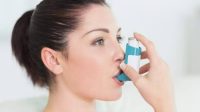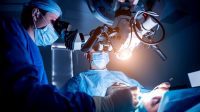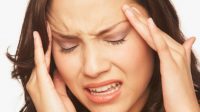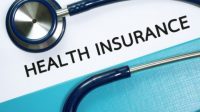After experiencing a stroke, you may be able to recover as usual. However, in some special cases, the signs of a stroke that arise will then continue. Therefore, after a stroke, you may be required to take treatment. What types and treatment options can you undergo? Follow this full description next.
It means taking treatment after facing a stroke
The goal of taking-stroke rehabilitation is to restore the ability or function of the body that has been lost due to a stroke. Medication and rehabilitation can help you restore the lost function when the brain faces damage while improving the quality of life.
This will definitely mean a lot to you so that you don’t face other recent health problems such as pneumonia, urinary tract inflammation, injuries from falls, or the formation of new clots of blood.
However, the severity of a stroke experienced by each person can be very different. This ensures that it is possible for each patient to be able to restore his condition. By taking the treatment, the patient’s situation is often much better than those who choose not to undergo it.
When taking treatment after a stroke, the aspect that needs to be considered is that this treatment must be tried on a prolonged basis and focus on training for special bodies. This rehabilitation should focus on the situation that is being felt by the sufferer, such as weakness, lack of coordination, difficulty walking, out of sight, or difficulty in dialogue.
Various treatment options for stroke patients
The following are some of the treatment options that can be tried after facing a stroke:
1. Treatment to improve physical skills
Treatment that is generally recommended by doctors for stroke sufferers is physiotherapy, or physical treatment. This treatment is trying to improve physical abilities that are weakened or decreased from facing a stroke.
Usually, this treatment is tried by training the patient’s physical skills or motor skills, such as increasing muscle strength and body coordination. Various guidelines are trying to be matched to the patient’s situation.
For example, if a stroke causes the patient to experience difficulty when chewing food, physical education will focus on developing the ability to chew food.
However, if a stroke causes the body to experience paralysis, physical training will be focused on improving skills and altering action in that area.
In special cases, the patient may be asked to use assistive devices first, such as a dipper, a walker, or special equipment to help the patient walk, or the use of a chakra bench.
There is also a piece of equipment called an ankle brace or ankle clip. This equipment can help the ankle to stay normal and strong in supporting the body mass while walking.
2. Physical treatment with technology boost
Along with technological advances, physical treatment for stroke can also be tried with the help of technology. Generally, this one treatment has many variations, one of which is tried by motivating weak muscles using electricity.
The goal is to make the muscle contract so that it can help restore muscle strength. There are also treatments using robotic features that can help parts of the body that are experiencing paralysis to perform repetitive or multiple actions.
3. Cognitive and emotional treatment
Not all stroke patients face physical problems. There are also those who face speech impediments, difficulty mastering the words of others, and the like. This situation also has the potential to cause the sufferer to become weak psychologically.
It could be, the sufferer feels sad, hopeless, and many other things. Therefore, in addition to physical treatment, stroke sufferers also want cognitive and anger treatment to help improve their quality of life.
Cognitive medicine can help stroke survivors who have run out of cognitive skills such as memory, data processing, decision making, social skills, to regenerate those skills that were lost due to stroke.
Patients can also take dialogue medication to restore weakened dialogue skills. Not only dialogue, stroke sufferers can also improve their following and writing skills while taking this treatment.
In addition, sufferers who suffer from ischemic stroke and hemorrhagic stroke may want encouragement to strengthen their intellectual condition which may also weaken due to having a stroke. Doctors may also want to suggest the use of antidepressants or other similar drugs.
4.In certain cases, you may feel safer if you take alternative treatments, such as massage, acupuncture, the use of herbal medicines, or acid treatment. Even so, this treatment is being debated whether it can really help stroke patients in restoring their quality of life.
So, before taking treatment for a stroke, make sure that the doctor who treats you knows the concept of treatment that will be tried. Not only that, you should prioritize the treatment recommended by your doctor.
Aspects that can affect the success of stroke treatment
Before taking stroke treatment, it is better if you pay attention to what aspects can affect the success of this treatment. Among others are:
The severity of the perceived damage to the brain.
The age of the patient, where children and young children have a greater recovery rate than the elderly.
The level of self-understanding, because stroke can affect a person’s ability to focus and follow instructions well.
The seriousness of the treatment undertaken.
The severity of other health problems.
The situation or level of security in the patient’s home.
The situation or level of security in the patient’s place of activity.
Family and friends who want to share support and cooperation to help sufferers succeed in taking stroke treatment.
Rehabilitation duration. Generally, keep on being quick to try, will continue to be good.
The right time and place for stroke treatment
You can be confused, if and where treatment and rehabilitation can be tried. Generally, the concept of treatment such as going through rehabilitation and treatment for stroke patients will be determined with the family body first.
There are several options for the duration and place of treatment to suit the patient’s situation.
Inpatient rehabilitation
Usually this type of rehabilitation for stroke sufferers is tried in hospitals that have special sections for physiotherapy for their patients. If required to take overnight rehabilitation, the patient may be asked to stay in hospital for 2-3 weeks for stroke treatment.
The treatment to be undertaken includes intensive guidance which is tried for approximately 3 hours per day, for 5-6 days per week. If you take treatment at a hospital with adequate physical treatment facilities, you will be accompanied by a physical medicine expert and various other medical experts according to the situation after a stroke.
Rehabilitation on the road
This rehabilitation does not require stroke sufferers to be hospitalized or stay in the hospital while taking stroke treatment. Similar to overnight watch rehabilitation, this one rehabilitation is also tried in a hospital with complete facilities.
In general, patients who are advised to take on-line rehabilitation only do stroke treatment for 3 days a week. Although it is mandatory to spend almost a day in the hospital, at least the patient will be allowed to return home after completing the stage of therapy.
However, the seriousness of stroke treatment undertaken by the patient will be similar to that of a patient who stays overnight. It’s just that, the patient’s situation could be a little better so he was allowed to take online treatment.
Treatment in rehab
There are also special places for health rehabilitation, such as this rehabilitation center. Generally, rehabilitation centers will provide various facilities needed for patients to be able to take stroke treatment properly.
Not only that, you or your loved ones who have had a stroke are also allowed to stay while taking treatment there. In this kind of health rehab, usually there will be a medical expert who will assist you throughout the healing process after a stroke.
On the other hand, it may be that while undergoing treatment at a rehabilitation center, the doctor will occasionally check and monitor your condition during stroke treatment.
Rehabilitation at home
For some sufferers, home is the best place for stroke treatment. If the house is considered comfortable and sufficient, doctors and medical professionals may want to approve your request to undergo rehabilitation at home.
Apart from the situation and area of the house, your situation will also want to determine whether taking home remedies is the best solution for the health situation. The reason, the sense of comfort and security that is owned by the patient will also be prioritized in order to help the healing process has become faster and more enjoyable for stroke sufferers.
When stroke treatment is attempted at home, doctors and medical professionals will likely come to you several times a week to help with the rehabilitation process. Generally, treatment will be tried for 2-3 hours per day.
Reliable medical team that helps in stroke treatment
In taking stroke treatment, not only doctors will help you, but also various reliable medical experts who are ready to assist in treatment methods. Among others are:
1. Doctor team
This team of doctors is special to assist you in taking treatment, especially physical medicine. These doctors are responsible for managing and controlling the treatment of patients, especially long-term stroke treatment.
The team of doctors will also propose a rehabilitation program that is suitable for the patient’s situation and wishes. Generally, those listed in this team of doctors are doctors who specialize in physical medicine and healing, neurologists, internal medicine doctors, and geriatric experts (special doctors for the elderly).
2. Companion nun
Nun aides during rehabilitation procedures can help and assist patients during physical treatment. Not only that, it is usually nuns who want to share various data with patients regarding health care on a regular basis.
Among other things, informing the patient when it is time to take medication, and how to protect skin health and control the measles problem that is commonly experienced by sufferers.
Not only that, nuns also want to assist patients in carrying out simple situations. The illustration, such as when you will get out of bed and lean on the chakra bench when you are going to take treatment.
3. Physical medicine specialist
Slightly different from a doctor, a physical medicine expert is a person who will assist during various physical training, such as motor skills and sensory skills.
This physical medicine expert will help you restore body function by assessing and correcting problems related to balance, action, and body coordination.
The physical treatment program after a stroke that will be carried out with this medical expert usually includes guidance for muscle strength, improving body coordination, and increasing movement changes of stroke sufferers.
4. Occupational medicine specialist
Although by helping sufferers improve motor and sensory skills, occupational medicine specialists are not the same as physical medicine specialists. In terms of treatment, he will help ensure the patient’s safety in carrying out activities throughout the period after the stroke.
This medical expert is more focused on training patients to carry out more special conditions. The illustration, training patients to wear their own clothes, prepare their own food and sterilize the house independently.
5. Recreational medicine specialist
This medical expert will help stroke sufferers with various purposes of their body weaken or decline so that they can use their free time to improve their health, ability to do various things independently, and of course, quality of life.
6. Speech medicine expert
In some situations, a stroke can cause sufferers to face difficulties when speaking. Speech medicine specialists will focus on helping patients to practice dialogue. Not only that, this medical expert can also help patients to speak in various other ways, if speech is a difficult thing to try.
Patients who have problems when chewing food will also be trained to do it more easily by this one medical expert. In addition, speech-medicine experts also direct problem-solving skills and socialize with other people who may reduce the impact of stroke.
7. Psychologist
For the National Institute of Neurological Disorders and Stroke, psychologists are one of the teams that will help your healing process in taking stroke treatment. Psychologists will help patients maintain psychological health and anger and take into account the cognitive abilities of patients after a stroke.
8. Vocational medicine expert
This one treatment expert may be needed but helps the patient to ensure work after dealing with a stroke. Generally, this one-treatment expert is needed for patients who are in their productive age.
A vodkas medicine specialist may want to take into account the skills and strengths you currently have after a stroke, and help prioritize those skills in your resume creation.
Vocational medicine experts are actually similar to job consultants, because they can help identify what profession is right for you after facing this situation. (*)
